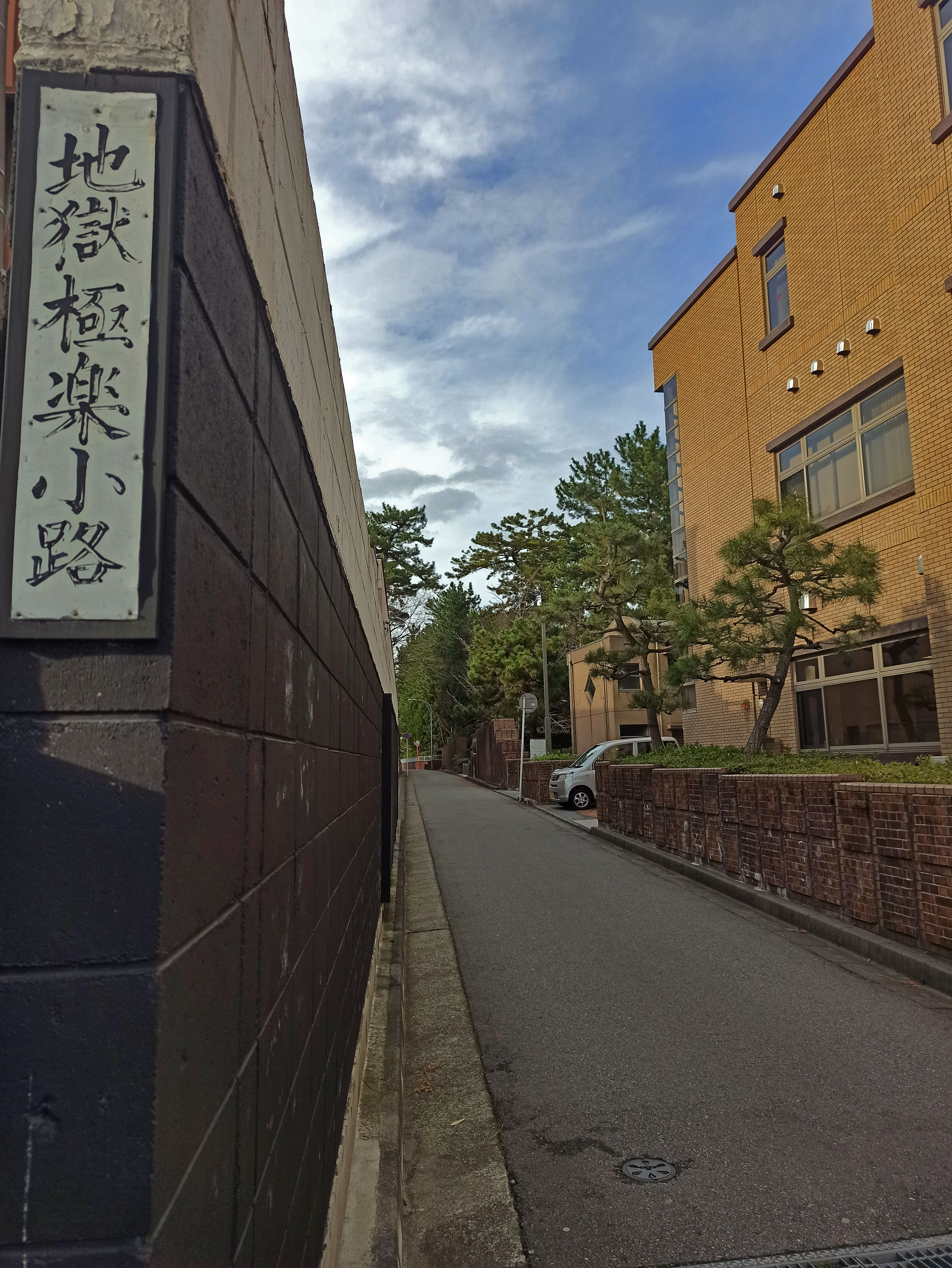There are three big reasons why I enjoy foreign languages. The first stems from wanting to understand what to order on worldwide menus; it’s less to avoid ordering certain things, and more to learn what I’d want to order again.
The second reason is because I appreciate the art of spontaneous conversation. Simple as that.
Thirdly, signs. What does that sign mean? What’s the history behind that sign? In how many different languages is it written? Do the people who created the sign actually want me — let’s say, as the outsider — to understand it?
With that background out of the way, let’s jump right in to the first language lunes:

Randomly walking around the backstreets of Niigata, Japan, I came across this otherwise uninteresting cookie-cutter street called 地獄極楽小道 (jigoku gokuraku komichi), or “hell paradise path.” The word for paradise — gokuraku — is based on the Mahayana Buddhist concept of Sukhavati, or the “land of pure bliss.”
What’s with the mysterious street name, Niigata?
With some background in the Japanese language, my own translation was “hell + epitome of pleasure path.” Have to keep things in balance, right?
I didn’t find a plaque describing the background, so I checked out some Japanese sources online. The first mentions that a prison has been in the area since 1845. That could explain the hell part. But paradise?
Checking a second source, I read that a restaurant called Ikinariya — hidden by the black wall in the left of the photo — has been around for more than 300 years. The low red brick wall in the right of the photo is what remains of the prison, which was demolished in 1971.
So then, was the restaurant paradise?
No.
The hell & paradise path name comes from a letter discovered by one of the former owners of the 300-year old restaurant. Written by a Kyoto-based artist perhaps hundreds of years ago, one of the lines mentioned that heaven and paradise existed side by side.
Who would have that thought an esoteric line in a letter could have inspired the naming of a street?
I hope that you enjoyed the original language lunes. Stay tuned for more eye-opening language discoveries every Monday!

Leave a Reply